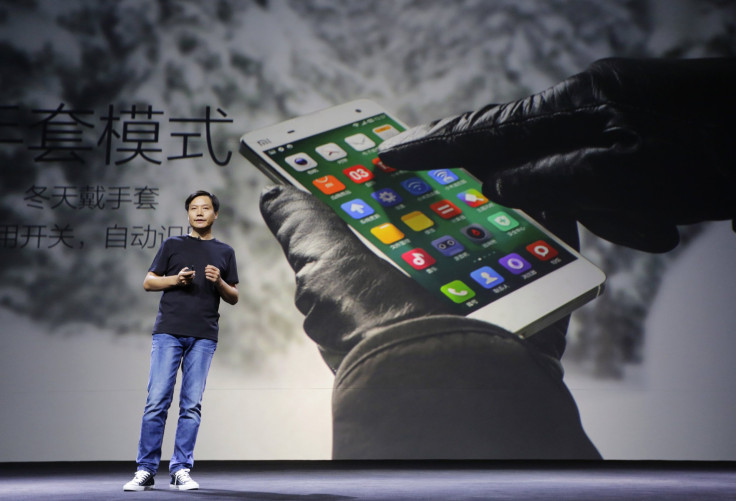Xiaomi Triples Smartphone Sales In 2014, Mounting Global Challenge to Apple, Samsung

China's Xiaomi Inc. has become the world's No. 3 smartphone-maker -- behind Samsung Electronics Co. Ltd. and Apple Inc. -- mostly by selling low-cost smartphones in China, India and the rest of the developing world. CEO Lei Jun posted on Sina Weibo this weekend a sign of just how fast Xiaomi is growing: The company sold more than 60 million smartphones in 2014 and booked nearly $12 billion in revenue.
That's more than triple its smartphone sales from 2013 and a 135 percent increase in revenue. No profit figures were made available by the privately held company, but its margins in the past have been thin, earning just $56 million in profit in 2013.
It's the latest milestone in the ascent of a company founded in 2010; late last year the company announced it had raised $1.1 billion to fund expansion, earning the moniker "world's most valuable tech startup," from the Wall Street Journal.
But that hardly begins to describe Xiaomi, whose CEO is compared to Steve Jobs and which is mounting a stiff, global challenge to Apple, Samsung, LG, Lenovo and everyone else in the smartphone business.
The news comes as the company unveils the latest model in its popular low-cost Redmi line of phones and tablets, the Redmi 2, which is priced at $112. The Redmi, like all Xiaomi phones, runs a version of Android called MIUI, an ecosystem of apps and services that could pose a challenge to the duopoly of Apple's iOS and Google's version of Android.
The company professes no immediate plans to launch in the United States and for now it doesn't have to; there are plenty of new smartphone users to acquire and old ones to steal from the competition in emerging markets. The latest global IDC figures have Xiaomi with 5.3 percent of the global smartphone market, behind Samsung, 23.8 percent and Apple with 12 percent.
© Copyright IBTimes 2025. All rights reserved.




















